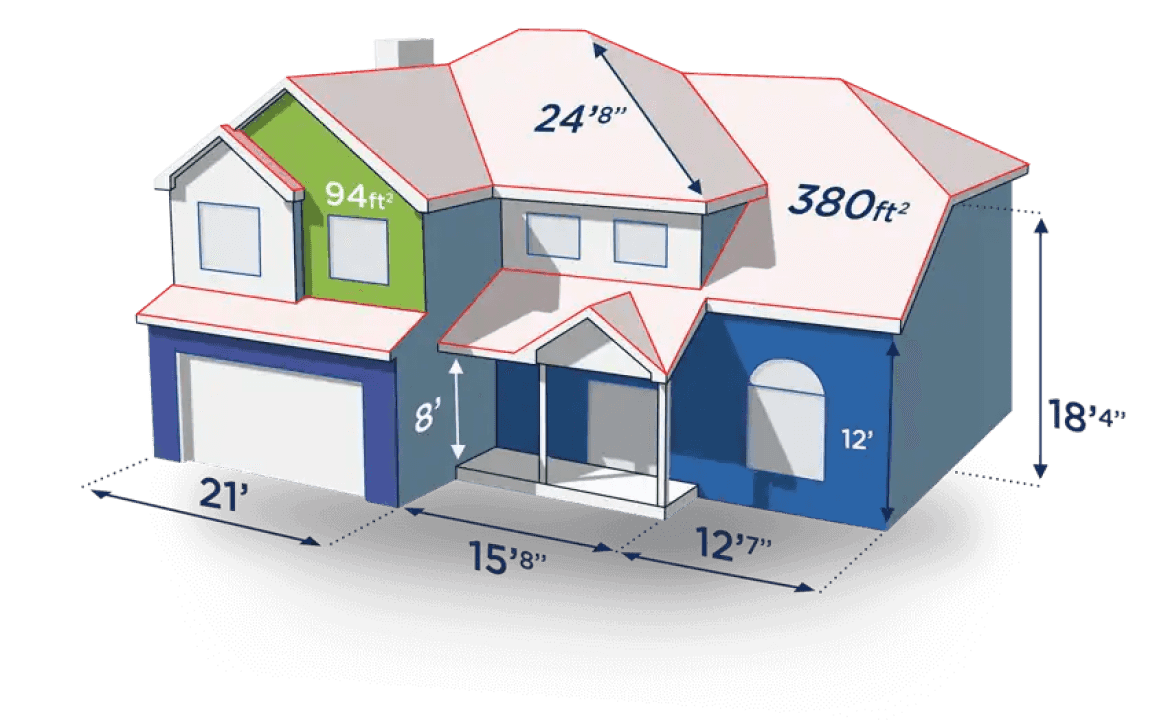
With the power of technology, we’re witnessing an evolution in every sector, and the home building industry is not left untouched. Think of home builder software as a digital assistant, specifically tailored for those who bring architectural blueprints to life. Yet, the myriad of software choices can seem overwhelming. So, how do you identify the one that aligns perfectly with your needs?
This guide will illuminate the path to choosing the right home builder software, highlighting the indispensable features to consider. A special emphasis will be laid on the role of building automation softwares, and how it can revolutionize the way home builders work.
Home Builder Software: A Comprehensive Tool

At its core, home builder software is a dynamic and adaptable program designed to help home builders and construction companies manage, organize, and streamline their projects. This technology platform provides a central hub for all aspects of home building, including project management, scheduling, budgeting, client communication, and document storage, among other functions.
The beauty of home builder software is its ability to simplify complex processes, saving builders from drowning in paperwork and manual tracking methods. With this software, you can digitally manage blueprints, contracts, and other documents, monitor budgets in real-time, and maintain clear communication lines with clients and team members.
Key Features of Home Builder Software
The effectiveness of a home builder software solution largely depends on its features. To truly enhance operational efficiency and productivity, there are some key features that are absolutely critical:
- User-Friendly Interface: The best home builder software is intuitive and easy to navigate. It should be designed in a way that even those who aren’t technologically inclined can easily use it. If users struggle to figure out basic functions, it may lead to frustration, wasted time, and reduced productivity.
- Automation: Automation is arguably one of the most valuable features of modern software, and home builder software is no exception. It allows routine tasks to be automated, freeing up valuable time for you and your team. This can range from sending out automatic payment reminders to generating progress reports and more.
- Customizability: A “one size fits all” approach does not work when it comes to home builder software. Every construction company operates differently, with unique needs and workflows. As such, the ability to customize the software to match your business’s specific requirements is essential.
- Robust Support: Inevitably, there will be times when you encounter problems or need help using the software. Hence, a strong and responsive customer support team is a must. This feature ensures you can quickly get back to work when facing issues or difficulties.
- Budget Tracking: Overruns in construction projects can be a major issue, causing significant financial strain. With effective budget tracking, you can avoid this by keeping an eye on expenses in real time. This allows you to make adjustments on the fly and ensures financial transparency with your clients.
- Collaboration Tools: Home building is a collaborative effort involving various stakeholders such as architects, contractors, and clients. Therefore, features that promote effective collaboration, such as shared calendars, task assignments, and real-time updates, can significantly enhance workflow.
- Document and Blueprint Management: Dealing with blueprints and other documents can be a headache when not properly managed. Home builder software should provide a centralized place for storing, viewing, and sharing these critical files.
- Mobile Access: In today’s fast-paced world, having access to your project details while on the go is important. Mobile-friendly software allows you to manage your projects, check progress, and communicate with team members anytime, anywhere.
Why Automation Matters: A Deep Dive into Its Significance in Home Builder Software

Before diving into the reasons why automation is essential, let’s clarify what it means in the context of home builder software. Automation in this realm refers to the software’s ability to perform tasks automatically without human intervention. These tasks can range from generating reports, sending out payment reminders, updating budgets, to even setting schedules for project phases.
Time Efficiency
The primary benefit of automation lies in its ability to save time. Home builders often juggle multiple tasks simultaneously, and manually overseeing every minor detail can be daunting and time-consuming. Automation alleviates this pressure by taking over routine tasks, freeing up time for home builders to focus on more critical aspects of the project.
For instance, instead of manually creating and sending out invoices, the software can automate the process. Similarly, updating project timelines, tracking budget utilization, and sending out progress updates to stakeholders can all be automated, allowing builders to concentrate on the actual building process.
Reducing Errors

Humans are prone to mistakes, especially when it comes to repetitive tasks or handling large amounts of data. Automation, being machine-driven, significantly reduces the possibility of errors. Whether it’s calculation mistakes in cost estimations, missed deadlines, or overlooked schedule conflicts, automation can help to avoid these common pitfalls. By minimizing errors, automation not only saves time and resources spent on rectifying these mistakes but also enhances the overall quality of work.
Consistency and Standardization
Automation brings about a level of consistency and standardization that’s hard to achieve manually. Since automated processes follow predefined rules and algorithms, the tasks are performed identically every time, ensuring consistency. This uniformity is particularly beneficial in maintaining standard procedures, generating regular reports, and ensuring regulatory compliance.
Improved Decision-Making
With the ability to gather, process, and analyze data faster and more accurately than humans, automated software can offer valuable insights. It can track patterns and trends, predict project timelines, and provide cost estimations, all of which can contribute to more informed and strategic decision-making.
For instance, by analyzing past project data, the software can predict potential budget overruns or identify phases of the project that typically take longer than anticipated. Armed with this information, home builders can make proactive decisions to mitigate risks.
Enhanced Customer Satisfaction
Automation can also contribute to improved client satisfaction. By automating communication, clients can receive regular updates about the project, enhancing transparency. Automated scheduling tools ensure deadlines are met, which is crucial in maintaining client trust.
Scalability

Automation facilitates scalability, a critical aspect for growing businesses. As your operations expand, the tasks to manage also multiply. Automation allows you to handle this increased workload without proportionally increasing your resources, making growth more manageable and less stressful.
Conclusion
Automation in home builder software is not just a trendy feature; it’s a critical component that brings significant advantages. It streamlines processes, enhances efficiency, reduces errors, and aids in informed decision-making. As we move further into the digital age, the importance of automation will only continue to grow, making it an indispensable aspect of any effective home builder software solution. Embracing automation is not just about staying current with technology trends; it’s about optimizing operations and paving the way for success in a competitive









